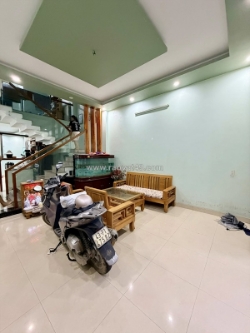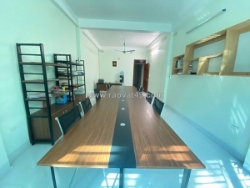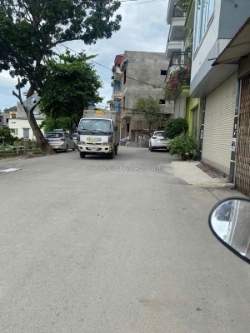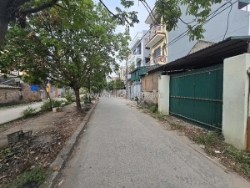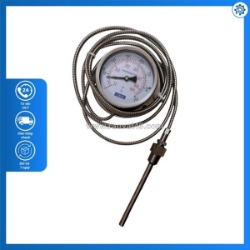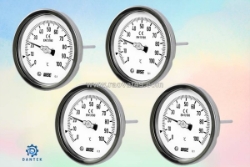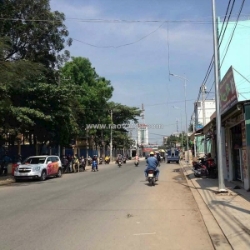Assessing the current innovation landscape of nordic specialty coffee roasters
Ngày đăng: 5/24/2024 3:06:42 PM - Tổng hợp - Toàn Quốc - 75Chi tiết [Mã tin: 5330428] - Cập nhật: 2 phút trước
Tracing the Scandinavian Roasters’ Role in the Advent of Specialty Coffee
To appreciate the Scandinavian influence on specialty coffee, it’s essential to delve into Scandinavia’s coffee history.
Arriving in the late 17th century, coffee found a unique place in Scandinavian society, particularly as alcohol consumption dwindled due to prohibition in Norway and hefty taxes on spirits across the region. Coffee swiftly became a cultural cornerstone, with its consumption becoming a hospitable gesture for visitors in every Nordic home.
This coffee-centric culture birthed various traditions, such as Sweden’s ‘Fika,’ a social coffee break accompanied by pastries, and Iceland’s ‘Kaffitímar,’ a pause in the day for coffee and relaxation. Denmark’s ‘Kaffepause’ similarly reflects the ingrained custom of taking spontaneous coffee breaks.
The term “specialty coffee” may have been coined by Erna Knutsen in the mid-1970s, but it’s the Scandinavian roasters who are credited with being pivotal in its rise during the 1990s and early 2000s.
Co-founder of Coffee Collective in Copenhagen
Klaus Thomsen, co-founder of Coffee Collective in Copenhagen, emphasizes Scandinavia’s long-standing preference for washed Arabica over Robusta, noting the established taste for cleaner, more nuanced coffees. He points out Denmark’s early exposure to the aromatic and acidic coffees of Kenya, which shaped the country’s palate.
Echoing this narrative, Tim Wendelboe, the founder of his eponymous roastery in Oslo, acknowledges Solberg & Hansen’s significant impact on Norway’s coffee scene. By the late 1990s and early 2000s, this roaster was not only buying exceptional coffees from Cup of Excellence auctions but also supplying many Oslo coffee shops with these high-quality beans.
Wendelboe remarks on the early Nordic fascination with ‘coffee with an address,’ observing the shift from blends to single-origin purchases by roasters in the early 2000s, a testament to the region’s pioneering role in the specialty coffee movement.
Tin liên quan cùng chuyên mục Tổng hợp
 2
2🔴💥nhà 3 tầng đường trần qúy khoách, hòa minh, liên chiểu, đà nẵng
Cập nhật: 9 phút trước- 0
89bet2 offers exceptional online gaming experience for players worldwide today
Cập nhật: 13 phút trước  2
2Bán mặt tiền kinh doanh – dòng tiền 12tr/th – (5.2×14) – đường 12m thông
Cập nhật: 14 phút trước 2
2Bán nhà mặt phố hoàng như tiếp- lô góc- kinh doanh- dân xây 65m 5 tầng - ô chờ
Cập nhật: 30 phút trước 2
2Chính chủ cho thuê văn phòng làm việc – khu liền kề 29 dịch vụ 01, khu b,
Cập nhật: 47 phút trước 2
2Cho thuê nhà mới xây – đường liên mạc, phường liên mạc, quận bắc từ liêm, hà nội
Cập nhật: 53 phút trước 2
2Bán nhà trịnh đình trọng q.tân phú 60m²,2 tầng - sát q.tân bình
Cập nhật: 55 phút trước 2
2Hiếm- bán đất ngọc lâm- thông phố nguyễn văn cừ- kinh doanh-giá đầu tư- 480m 5x
Cập nhật: 56 phút trước 2
2🚨🚨🚨hiếm !!- nhà đẹp đại áng mới tinh- gần hồ điều hoà - gần nhiều tiện ích
Cập nhật: 35 phút trước 1
1🔥🔥🔥nhà đại áng - ngọc hồi ,hn mới kính koong- đẹp lung linh 🔥 🔥 🔥
Cập nhật: 35 phút trước 2
2🔥🔥🔥cực hiếm hót- mặt phố đại áng - ô tô tránh-kinh doanh- view hồ.🔥🔥🔥
Cập nhật: 38 phút trước 2
2🔥🔥🔥cực hiếm hót- mặt phố đại áng - ô tô tránh-kinh doanh- view hồ.🔥🔥🔥
Cập nhật: 41 phút trước 2
2🚘🚘🚘 hiếm!!! - đất khánh vân mặt đường ô tô tránh,gần vành đai 4. tiện ích
Cập nhật: 44 phút trước 1
1🔥🔥🔥 mặt phố 2 thoáng - trung tâm - kinh doanh - vị trí đẹp - đầu tư - 🔥🔥🔥
Cập nhật: 46 phút trước 2
2🔥🔥🔥 nhà đại hưng đẹp lung linh - 6 tầng - gara ô tô - thang máy - tiện ích
Cập nhật: 46 phút trước 2
2Hiếm hót!!- nhà đại áng gần hồ điều hoà - gần nhiều tiện ích - ở sướng
Cập nhật: 46 phút trước 2
2Sát mặt tiền q4 ngang 3.6 dài 9 nở hậu ngang 4m đúc bt dưới 4 tỷ
Cập nhật: 13 phút trước- 0
Mũ tai bèo năng động, thời trang và phù hợp mọi phong cách-umtb00146
Cập nhật: 42 phút trước  1
1Top element organics hemp gummies australia result
Cập nhật: 44 phút trước 2
2Bo góc tủ nhôm kính 3 chân chắc chắn, thẩm mỹ cao
Cập nhật: 58 phút trước 2
2Duy nhất 1 căn yên hòa cầu giấy 58m 4 tầng phân lô vài bước ra phố nhỉnh 15
Cập nhật: 10 phút trước 2
2Chỉ duy nhất 1 căn giáp bát hoàng mai gara ô tô – hai thoáng vĩnh viễn –
Cập nhật: 10 phút trước- 0
Đồng hồ nhiệt độ dạng dây yamaki 0–350°c là gì? giải pháp đo nhiệt linh hoạt, chính xác cho công nghiệp | dantek
Cập nhật: 15 phút trước  1
1Đồng hồ nhiệt độ dạng dây yamaki 0–350°c là gì? giải pháp đo nhiệt linh hoạt, chính xác cho công nghiệp | dantek
Cập nhật: 15 phút trước- 0
Đồng hồ nhiệt độ dạng dây yamaki 0–350°c là gì? giải pháp đo nhiệt linh hoạt, chính xác cho công nghiệp | dantek
Cập nhật: 15 phút trước  2
2🏡 bán nhà giáp bát hoàng mai gara ô tô – hai thoáng vĩnh viễn – 36mx6t nhà đẹp
Cập nhật: 16 phút trước 2
2Ke cân bằng gạch sàn chống cong vênh hiệu quả
Cập nhật: 18 phút trước 1
1Đồng hồ nhiệt độ wise – thiết bị đo nhiệt chính xác, tuổi thọ cao cho nhà máy | dantek phân phối
Cập nhật: 22 phút trước 1
1Môi trường phú xuân - đơn vị chuyên tư vấn thi công xử lý nước thải uy tín
Cập nhật: 23 phút trước 2
2Chung cư huỳnh văn chính - quận tân phú - 4 x 11 m - 2.6 tỷ
Cập nhật: 29 phút trước 1
1Công ty chuyên cung cấp dịch vụ thiết kế và thi công xử lý nước thải chất lượng
Cập nhật: 42 phút trước 1
1Thuê vest nam tphcm - shop vest nam uy tín với đa dạng các kiểu dáng vest
Cập nhật: 52 phút trước 1
1Dịch vụ thu mua sắt thép phế liệu – giải pháp giảm chi phí , nâng cao không gian sxuất
Cập nhật: 4 phút trước- 0
Climaxin male enhancement™ "where to buy" - is it worth buying?
Cập nhật: 4 phút trước  2
2Nhà chdv đường phan đình phùng quận phú nhuận phường cầu kiệu.
Cập nhật: 5 phút trước 2
2Bán nhà phố nguyễn công trứ, 45m2, 6 tầng thang máy, mặt tiền 7m, 10.8 tỷ, ở
Cập nhật: 6 phút trước 1
1Bán nhà mặt phố võ thị sáu, 21m2, 4 tầng, mặt tiền 5m, 10.6 tỷ, vỉa hè rộng,
Cập nhật: 6 phút trước- 0
Is calmx cbd safe and beneficial to buy from its "official website"?
Cập nhật: 7 phút trước  2
2The emerald garden view an cư lý tưởng cho gia đình giá chỉ 35 triệu/m² dễ mua,
Cập nhật: 7 phút trước 1
1Bán nhà hàn thuyên, 66m2, 4 tầng, mặt tiền 4.2m, 16 tỷ, ngõ xe máy quay đầu,
Cập nhật: 7 phút trước 2
2Siêu phẩm đất góc 3 mặt tiền – trung tâm tân chánh hiệp, quận 12
Cập nhật: 8 phút trước 2
2Mặt tiền đường số kdc bình hưng gần bến xe quận 8 - ô tô ngủ trong nhà , 6x16m
Cập nhật: 8 phút trước 2
2Bán nhà lý thường kiệt, 45m2, 5 tầng, mặt tiền 5.2m, 28.3 tỷ, ngõ rộng thoáng,
Cập nhật: 8 phút trước 2
2Cực hiếm, bán nhà hàng chiếu, 100m2, mặt tiền 6.3m, 30.8 tỷ, kinh doanh
Cập nhật: 9 phút trước 2
2Bán nhà mặt phố triệu việt vương, 32m2, 7 tầng thang máy, mặt tiền 4m, 31.8 tỷ,
Cập nhật: 9 phút trước 2
2Chính chủ bán nhà phố hàn thuyên, 70m2, 7 tầng thang máy, 29.8 tỷ, kinh doanh
Cập nhật: 9 phút trước 2
2Nhà vườn (28x57) mặt tiền đt8-1 – đông thạnh, hóc môn (sát lê v khương)
Cập nhật: 9 phút trước 2
2Bán khách sạn mặt phố lương ngọc quyến, 80m2, 5 tầng, mặt tiền 5.4m, 77.5 tỷ,
Cập nhật: 10 phút trước 1
1Bán nhà phan chu trinh, 75m2, 7 tầng thang máy mới đẹp, mặt tiền gần 4m, 39.5
Cập nhật: 10 phút trước 1
1Bán nhà mặt phố tuệ tĩnh, 35m2, 4 tầng, mặt tiền gần 8m, 29 tỷ, kinh doanh đỉnh
Cập nhật: 10 phút trước
